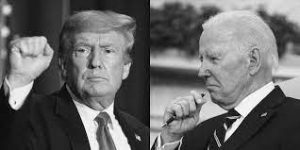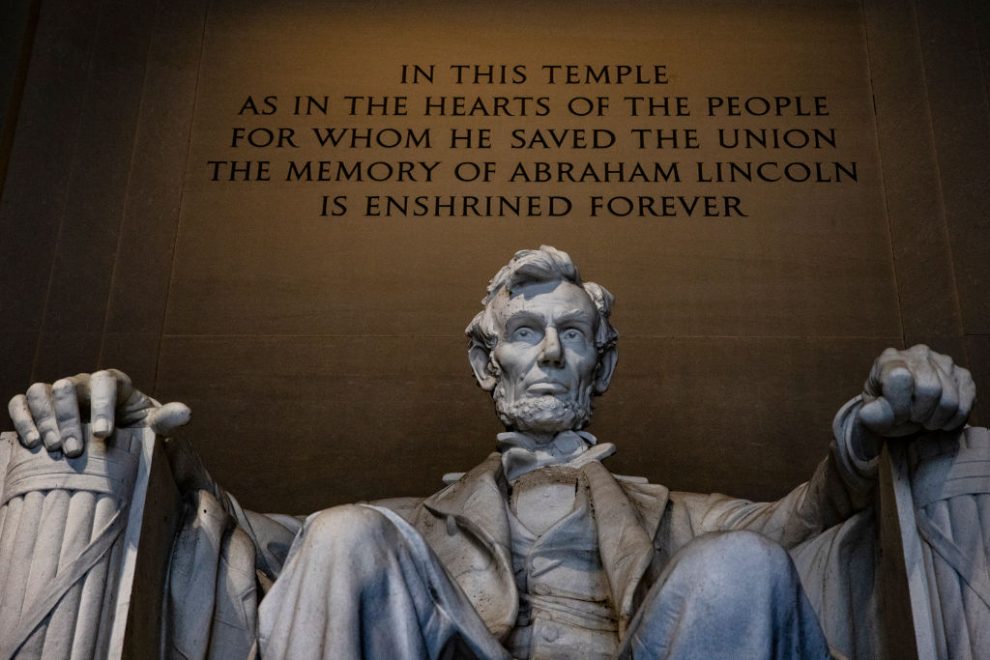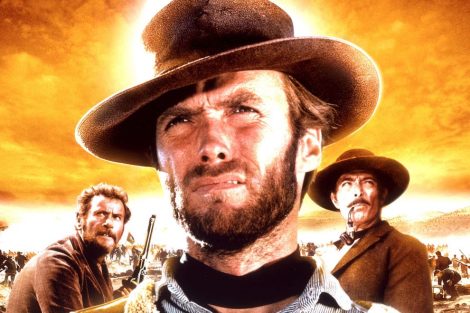These days marks 215 years of Abraham Lincoln´s birthday, who is considered by many to be the best president the United States has had in its almost two and a half centuries as an independent nation.
The historical parallel between the interesting times that Lincoln lived through, and the current ones is such that journalist Daniel Arjona wrote in the Spanish newspaper El Mundo:
“The United States is burning, political and racial conflicts are breaking out everywhere and the two political sides in conflict, increasingly polarized, only aspire to the liquidation of the adversary. When the presidential elections arrive, the losing candidate refuses to recognize the victory for his opponent. Shortly after, the first assaults on federal buildings take place, shots and explosions ring out in Washington. The civil war has begun.
“It happened in 1861, just after Abraham Lincoln won the presidential election and the Southern states did not accept the result. And it could be repeated in November 2024 in the second and definitive electoral confrontation between Joe Biden and Donald Trump in a country that, as “the one that plunged into the Civil War, is fractured between political positions that are as hostile as they are irreconcilable.”
Comparing our interesting times with the context that led to the Civil War between the slaveholding South and the industrial North is a temptation that is difficult to avoid. Contrast Lincoln, who became president at age 52, with the two elderly gentlemen who this year will try to win the White House – one at 81 and the other at 78 -, too.

The United States has been a country of heroes. Among other reasons because it has lived through great stories – its independence revolution, the largest industrial expansion in the world (before China), two world wars, the rise to its imperial status (economic and military), among many others -, but certainly the four years –1861-1865– of bloody clashes between Union troops and Confederate forces occupy a central place in the great American story.
Not so much for himself — his is a story somewhat typical of his time: he was born in poverty, was basically self-made, and went on to become a successful lawyer; perhaps due to his physical appearance (rather ugly and ungainly), he always maintained an almost pathological shyness in his relations with women and frequently fell into deep depressions–, Abraham Lincoln is an obligatory reference for attempting the United States due to the circumstances that led him to lead the winning side of the Civil War, the abolition of slavery and his tragic death.
I confess that it is difficult for me to take the parallel argument much further. After all, while in Mexico, Benito Juárez defended national sovereignty against the Napoleonic invasion, what the Civil War represented was the definition between two economic and even moral models of the country. The Southern states that depended on slave labor that arrived from Africa and the thriving industrial force that took off in the Northern states.
It was, in many ways, a crossroads in a decades-long conflict that erupted when Lincoln and the nascent Republican Party were forced to confront those in the Democratic party who attempted to erase the “Missouri line” (a political agreement that limited the legality of slavery to the southern states and to the east of that river) which opened the doors to the “nationalization of slavery.”
In the face of those who took up arms due to the supposed threat that recognizing the human condition of the black population would end up “dirtying” the “natural supremacy” of the white race, Lincoln opposed the legal defense of the Declaration of Independence of 1776:
“…all men are created equal, that they are endowed by their Creator with certain unalienable Rights, that among these are Life, Liberty and the pursuit of Happiness.”
And now? What does the virulent American polarization of this first quarter of the 21st century really represents?
Democracy or authoritarianism? (Biden dixit) The return to an imagined greatness or World War III? (Trump said).
Is it the fight between an oligarchic model against a supposed covert socialism conspiracy? Freedom against fascism? Is it perhaps a simple (and brutal) dispute between cliques?
Although perhaps, in some way, today’s dilemma is similar to that of 160 years ago. “You only have to drive down the highways in the south of the country to wonder who really won the civil war?” reflected one veteran foreign correspondent in the context of Katrina and its aftermath. Are all of us facing the last revolt of white supremacists?
There are certainly fundamental differences between the traditional racial supremacism, which today is said to be threatened by those who promote globalized capitalism, and the more modern visions that consider discrimination based on money and not so much the old one based on ethnic or cultural factors.
As in those times, today we also find overflowing passions, extreme pettiness, lack of political talent and stupidity, a lot of stupidity. Who we don’t see anywhere in the scenario is a new leader as crucial Lincoln was then.











